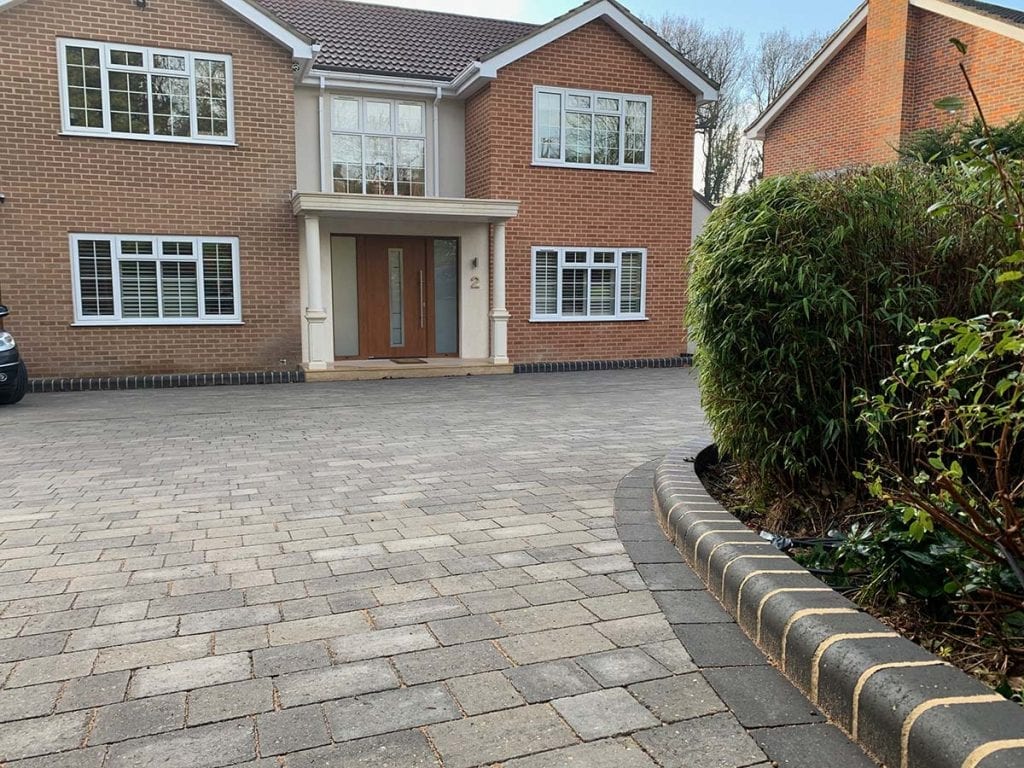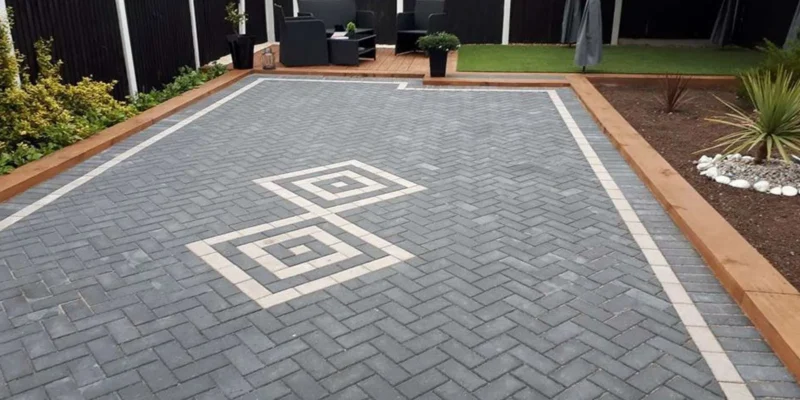With increasing concerns about flooding, water conservation, and environmental sustainability, many homeowners are turning to permeable block paving driveway as an eco-friendly alternative to traditional paving solutions. Permeable driveways allow water to naturally filter through the surface, reducing runoff and helping manage stormwater more effectively. In this article, we’ll explore the benefits of permeable block paving, how it works, and why it’s an ideal choice for your home.
1. What is Permeable Block Paving?
Permeable block paving is a type of paving system designed to allow water to pass through the surface into the ground below. Unlike traditional block paving, where water runs off the surface and into drains, permeable systems create a natural drainage solution by allowing rainwater to seep through gaps between the blocks or through porous paving materials.
a) How it Works
Permeable paving blocks are either specially designed to have larger gaps between them or are made from porous materials that let water pass through. These gaps or pores lead to an underlying layer of aggregate (stone) that temporarily stores the water, allowing it to gradually infiltrate the soil below. This process helps reduce surface water runoff, lessens the risk of flooding, and replenishes groundwater levels.
2. Benefits of Permeable Block Paving Driveways
a) Flood Prevention
One of the primary benefits of permeable block paving is its ability to manage stormwater. By allowing water to permeate through the driveway rather than flowing into storm drains, this system helps reduce the risk of local flooding, which is especially important in urban areas prone to heavy rainfall.
b) Eco-Friendly Solution
Permeable driveways contribute to environmental sustainability by promoting natural water filtration and groundwater recharge. This reduces the strain on drainage systems and mitigates the risk of water pollution, as the natural filtration process helps to remove pollutants before water enters the ground.
c) Compliance with Local Regulations
In many areas, including the UK, there are strict regulations on driveway paving to prevent excessive runoff that can contribute to flooding. Installing a permeable driveway can help you meet local planning regulations, especially in areas where surface water drainage is a concern.
d) Improved Aesthetic and Durability
Permeable block paving systems are available in various styles, colors, and materials, so you don’t have to compromise on aesthetics. Whether you prefer a sleek modern look or a more traditional appearance, permeable paving can be customized to suit your home’s exterior. Additionally, these systems are highly durable and designed to handle heavy loads, making them suitable for both residential and commercial use.
e) Reduced Water Puddling and Ice Formation
Because water naturally drains through permeable paving, there’s less risk of water pooling on the surface, which can reduce the formation of puddles during rain and ice during colder months. This helps create a safer, slip-resistant surface for vehicles and pedestrians.
3. Types of Permeable Block Paving Systems
a) Permeable Concrete Pavers
Concrete block pavers designed with gaps between them allow water to seep through the joints. These gaps are usually filled with a permeable material such as gravel or crushed stone, which further aids in drainage.
- Best For: Homes requiring a modern and customizable design.
- Pros: Durable, affordable, and available in various shapes and colors.
b) Porous Asphalt and Concrete
These materials are made with larger particles, creating voids that allow water to pass through the surface. Porous asphalt and concrete driveways are often used in large-scale projects but can also be suitable for residential driveways.
- Best For: Homes in areas with heavy rainfall or drainage issues.
- Pros: Long-lasting and highly effective at managing water runoff.
c) Gravel-Filled Systems
In this system, block pavers are spaced further apart, and the gaps are filled with gravel or small stones. The gravel allows water to filter through while providing a natural appearance.
- Best For: Rural homes or those looking for a more rustic or natural look.
- Pros: Affordable and low-maintenance, with excellent drainage properties.
d) Grid Pavers
Grid pavers use an open-cell structure that can be filled with grass or gravel. This system provides a permeable surface that blends with natural surroundings, making it an eco-friendly choice.
- Best For: Homes seeking an environmentally integrated solution.
- Pros: Allows greenery to grow, highly permeable, and visually blends with landscapes.
4. Installation Process
Installing a permeable block paving driveway is similar to traditional block paving but with a focus on ensuring effective drainage. The process typically involves the following steps:
- Excavation: The existing ground is excavated to the desired depth, ensuring enough space for the permeable layers.
- Sub-base Layer: A deep layer of angular gravel or crushed stone is installed to store water and support the surface.
- Geotextile Fabric: A geotextile membrane is often laid to prevent the mixing of soil and aggregate, enhancing drainage efficiency.
- Laying the Pavers: Permeable pavers are then laid with the necessary gaps or porous material.
- Joint Filling: The gaps between pavers are filled with gravel or another permeable material to allow water to filter through.
5. Maintenance of Permeable Block Paving Driveways
Permeable block paving requires regular maintenance to ensure it functions efficiently.
- Sweeping and Cleaning: Regularly sweep debris, leaves, and dirt from the surface to prevent clogging of the gaps or pores.
- Weed Control: Weeds can grow between the gaps in pavers, so periodic weeding is necessary to keep the driveway looking clean and well-maintained.
- Joint Replenishment: Over time, the gravel or joint material between pavers may wear away, so it’s essential to top it up when needed.

6. Cost Considerations
The cost of installing a permeable block paving driveway can vary depending on the material used, the size of the driveway, and the complexity of the design. Although permeable systems may be slightly more expensive upfront compared to traditional paving, they offer long-term benefits such as lower maintenance costs, enhanced durability, and the potential to avoid fines or additional costs associated with non-compliance with drainage regulations.
Conclusion
Permeable block paving driveways provide an excellent, sustainable alternative to traditional paving solutions. They help manage water runoff, reduce flooding risks, and contribute to environmental sustainability while maintaining an attractive appearance. Whether you’re looking to comply with local regulations, enhance your home’s curb appeal, or adopt a more eco-friendly lifestyle, a permeable block paving driveway is a smart and responsible choice for your property.
